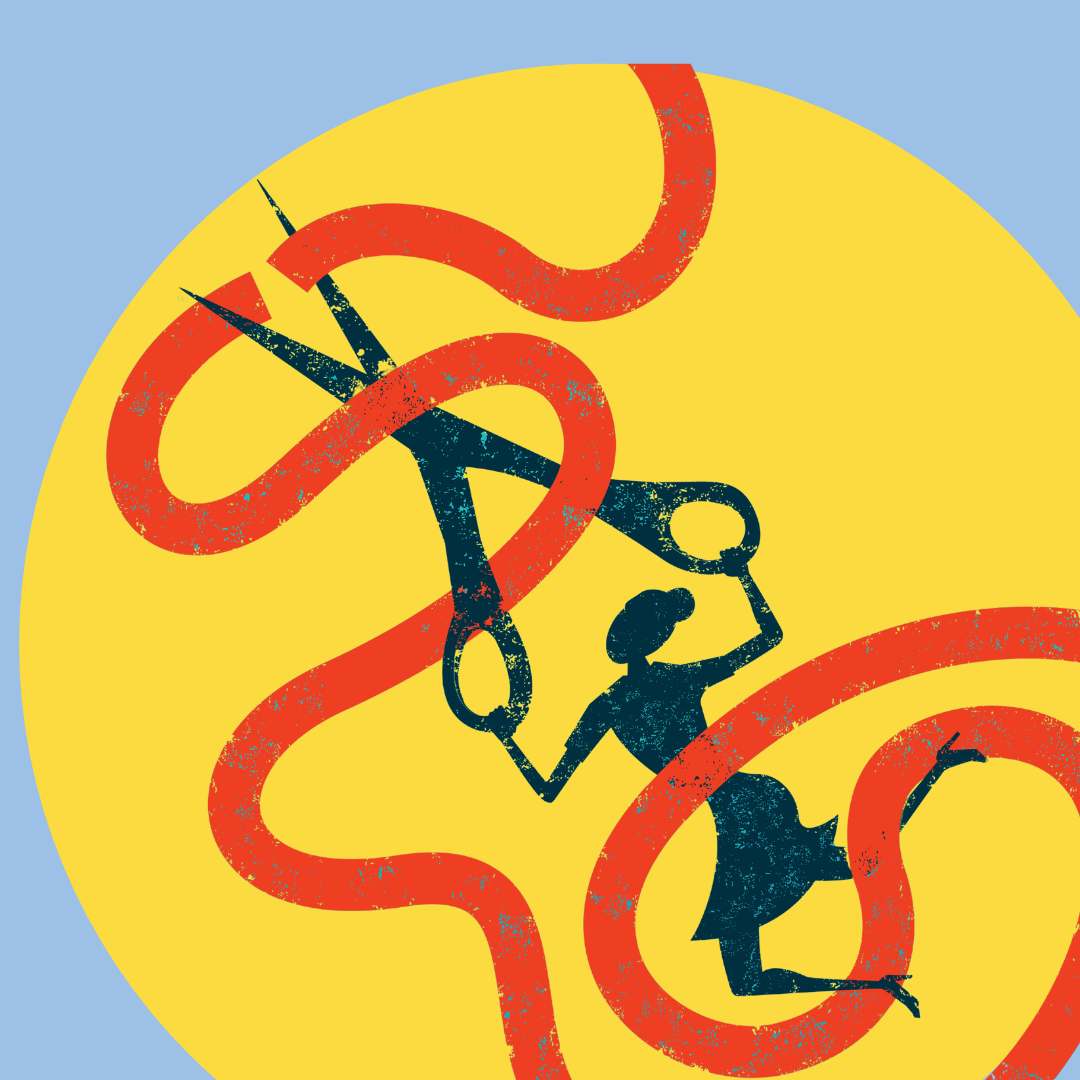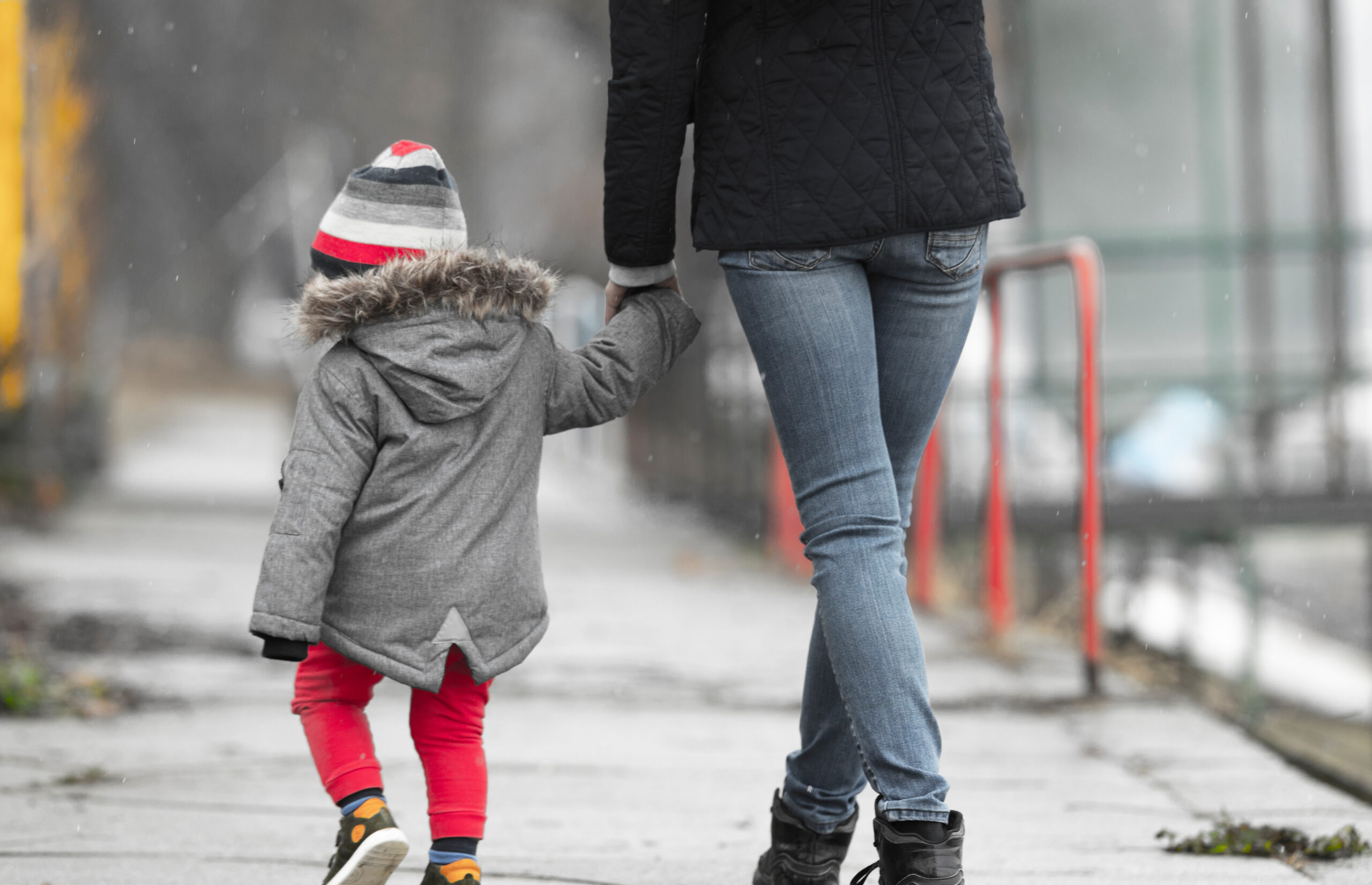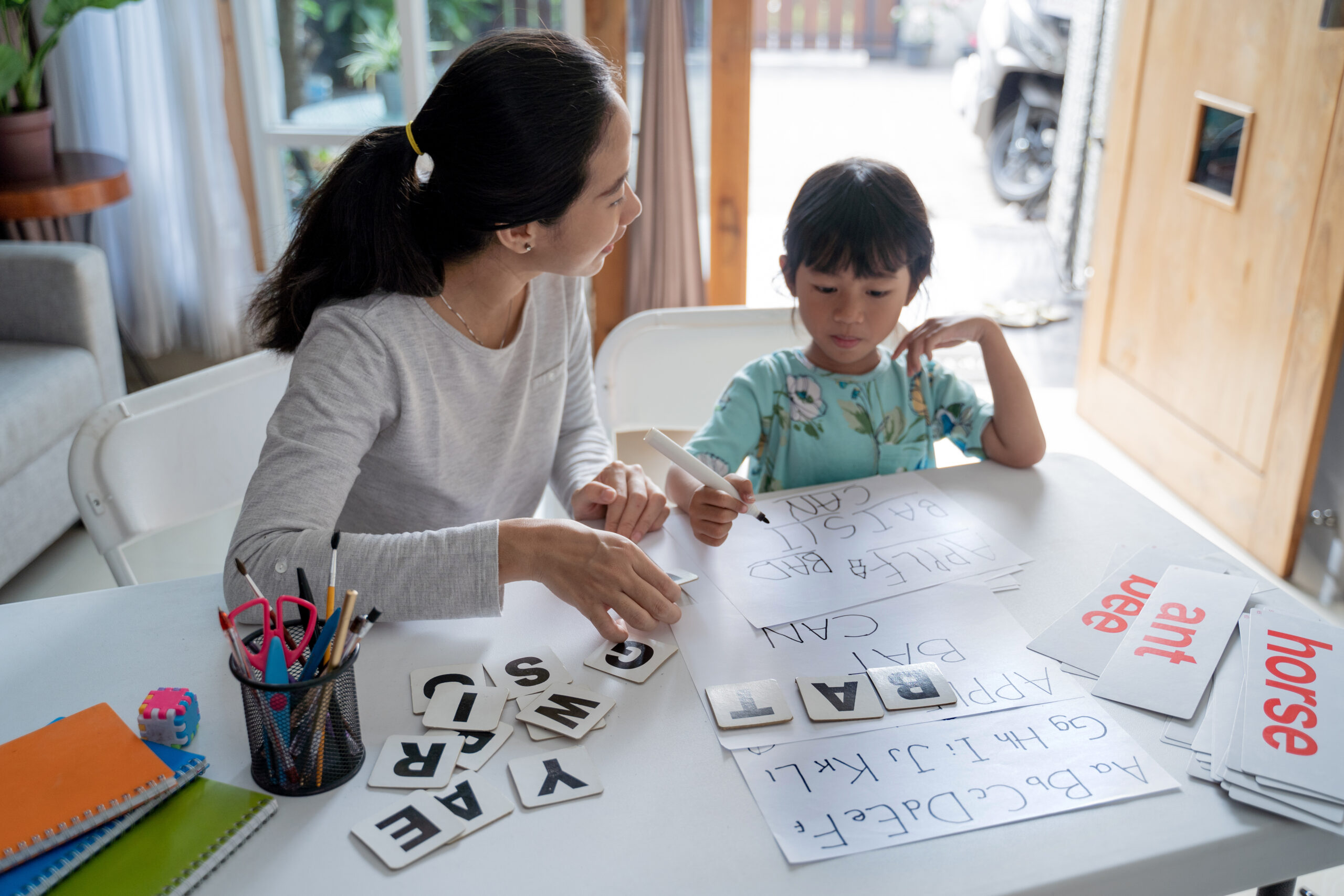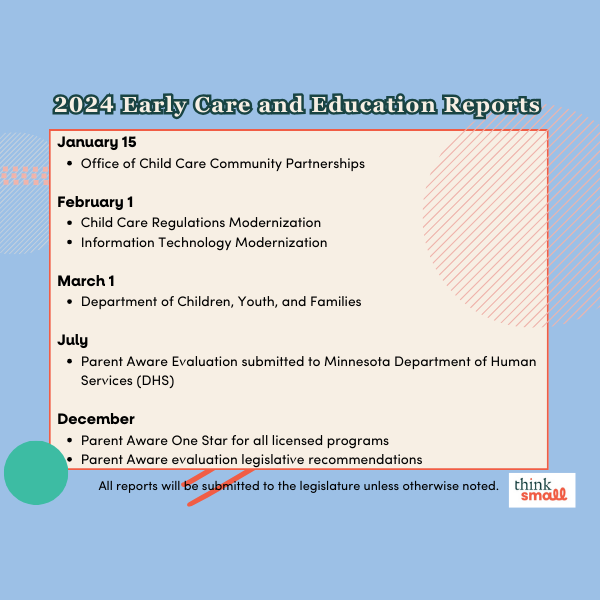House File 2292, the early education omnibus bill, passed both the House and Senate and was signed into law by Governor Walz. This bill contains new investments and policy changes for early care and education programs in Minnesota. The biggest investment in this bill is for Early Learning Scholarships. Early Learning Scholarships give low-income families financial support to help pay for quality early care and education.
There are some important changes and interactions with Parent Aware as well. Parent Aware is Minnesota’s Quality Rating and Improvement System (QRIS) for early care and learning programs. It is a framework for early learning programs to demonstrate and improve the quality of their environment and instruction.
We don’t know how all of these changes will play out yet, but here is what we know now!
Changes in Funding
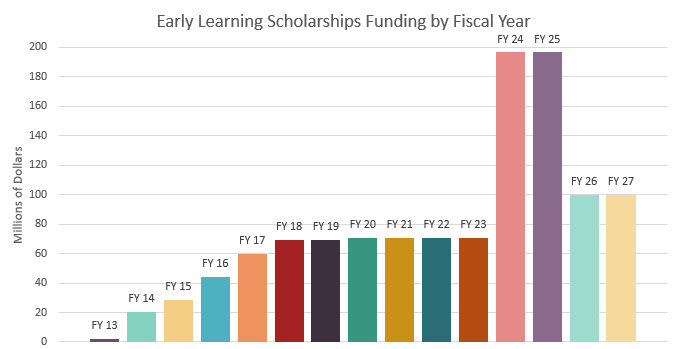
Funding for Early Learning Scholarships will increase from the current base of $70 million per year to $197 million per year in Fiscal Year (FY) 2024 and FY2025 before settling in at $100 million per year in FY2026 and beyond.
Changes in Eligibility for Children
Eligibility for young children will be expanded to all those who are income-eligible, ages birth to five. Currently children ages 3-5, their younger siblings, and babies and toddlers in priority groups are eligible.
Because Early Learning Scholarships are not fully funded to serve all children and still will not be after this is in place, the legislation includes categories to ensure those who could benefit the most receive the funding first.
New priority groups are children who:
- Are not yet 4 years old
- Have an incarcerated parent
- Have a parent in a substance use treatment program
- Have a parent in a mental health treatment program
- Have experienced domestic violence
These are added to the existing priority groups which are children who:
- Have a parent under 21 who is pursuing a high school diploma or GED
- Are in foster care
- Have been referred as in need of child protection services
- Have experienced homelessness in the past 24 months
Changes in Policies for Families
The measure of family income to determine eligibility will be updated to State Median Income (SMI), which is the same measure used for the Child Care Assistance Program (CCAP). This change does not really result in more or fewer families being eligible but allows for better alignment because the previous benchmark used was the Federal Poverty Guideline (FPG). There are some other changes in place that would allow scholarships to expand to serve higher income families, but families with the lowest incomes continue to receive priority.
In addition, families will have to enroll in an early learning program within 3 months of being approved for a scholarship, which is a shorter timeframe than the 10 months currently in legislation. They will be able to apply for an extension if necessary.
Changes in Eligibility for Programs
Programs that participate in Parent Aware will be able to receive Early Learning Scholarships at the new tiered rate (described in further detail below) which will be based on the market rate survey.
Any program participating in Parent Aware will be able to continue receiving Early Learning Scholarships in the new tiered amounts. This changes the current legislation which made only 3- and 4-star programs eligible starting in July 2024.
Another change in the bill that will affect this is that all licensed child care programs will have a 1-star Parent Aware rating in 2026. Programs will be able to opt out of the new structure. There will also be a study of how to implement this change.
Changes in Payment Structure
The Minnesota Department of Education (MDE) will create a schedule of tiered scholarship amounts based on the market rate survey conducted for the Child Care Assistance Program (CCAP). Early Learning Scholarships will have to, at a minimum, cover full-time care at a four-star Parent Aware-rated program.
Currently scholarship amounts are set by MDE, and they differ by star rating of the program and whether a child is part of a priority group. This amount covers the full cost of care for families in some situations but not all.
In addition, there is funding to implement administrative infrastructure including online application, updated case management system, and centralized payments.
Additional Future Considerations
Other new and ongoing early childhood efforts will also interact with these changes. Legislation passed this year creates a new Department of Children, Youth, and Families. When this is operational, Early Learning Scholarships will be administered here instead of out of MDE.
HF 2292 also includes language to establish the Great Start Scholarship Program, which combines CCAP and Early Learning Scholarships to create one funding stream, as recommended in the Great Start Task Force Report.
The Child Care Regulation Modernization project and the Parent Aware Evaluation will likely produce recommendations that will affect how these programs interact. Learn more about those projects and their timelines in a previous blog post.
There is still a lot to learn and decide as state agencies implement these new policies. Stay tuned as we learn more!
By: Marie Huey, Public Policy and Advocacy Staff Leader

